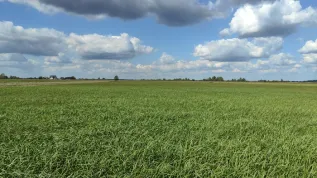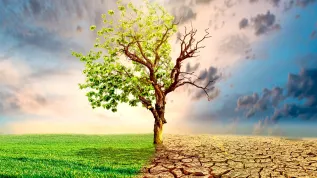
Annually, 1.5 tons of contact lenses end up in the Baltic Sea. The goal of the campaign "Open Your Eyes to Nature" is to draw attention to problem of their improper disposal and reduce the poisoning of the environment by people who flush used lenses down the drain.
"The point is to stop throwing contact lenses into drains. It`s the worst possible way of getting rid of used lenses. After flushing, they get into the wastewater treatment plant, then into the rivers and seas. From there they can easily find their way into the food chain of fish and other marine animals, and finally end up on our tables and in our bodies" - explains Jacek Szkólski, the originator of the campaign and a graduate of the Wrocław University of Economics.
According to the press release sent by the organizers of the campaign, the lenses from the sewage pipes make their way to the wastewater treatment plant. They are subjected to purification, but it is not always possible to catch them in the filtration process. Adam Golebiewski, an expert from the Polish Waterworks Chamber of Commerce, explains that even dense gratings are not capable of separating such small pieces of lenses. Eventually, their fragments end up in the sea. Annually, 1.5 tonnes of contact lenses worn by Poles end up in the Baltic Sea alone.
"People are often unaware that they poison the environment by throwing used contact lenses down the drain" - explains optometrist Laura Wanzel.
The organizers of the campaign "Open Your Eyes to Nature" want to change the bad habits of Poles and persuade them to find a safer place for used lenses. They explain that lenses can be collected in a special bag or empty lens container, and then thrown into cardboard boxes provided by selected optical stores.
"Open Your Eyes to Nature" is a free used contact lens management program for users of all brands of lenses. Its organizer is the network of optical stores Twoje Soczewki. More information (in Polish) at www.otworzoczy.com
PAP - Science in Poland
kol/ ekr/ kap/
tr. RL













